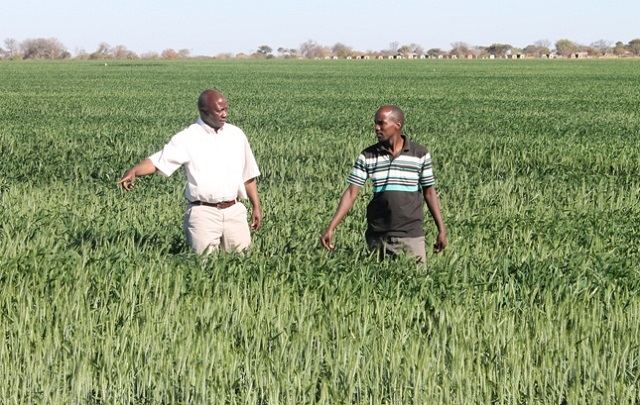EDITORIAL COMMENT: Govt-private sector partnerships crucial for agric revival

WE are encouraged by the unity of purpose and innovations in the agricultural sector and urge the various players working together to ensure Zimbabwe regains its breadbasket status to continue their commendable work. Private players have been working quietly with the Government to revive farming in the country and their efforts are beginning to show.
The entry of private players has been necessitated by a realisation that the majority of new farmers are incapacitated financially and unable to break into commercial farming due to lack of collateral security and access to loans. Thus Government has been reviving its estates around the country in partnership with the private sector while pursuing other ventures to boost yields.
The Agricultural Rural Development Authority has entered into a partnership with Trek Petroleum to resuscitate some of its vast estates in Matabeleland and the result has been magnificent. Arda Jotsholo Estate in Lupane is now the country’s best wheat producer having surpassed traditional producers of the crop in terms of standards. Arda board chairman, Mr Basil Nyabadza, said recently about 10 to 12 tonnes of wheat per hectare were expected to be produced by Arda Jotsholo with other districts set to produce an average of seven tonnes.
“We expect the finest wheat production to come from Arda Jotsholo where we planted 150 hectares of wheat. The crop there is better than the crop that is produced in Region 1 areas which have always been ranked best in crop production,” said Mr Nyabadza.
What is remarkable about the Jotsholo Estate is that it is in Region 5 considered the driest area with low rainfall totals annually. As such the region has not been performing well in crop farming save for ranching. “The estate was previously producing cotton but we recently introduced wheat and its doing very well considering that it is within Region 5. The estate was being underutilised all this while as we have just realised its potential,” said Mr Nyabadza revealing plans to increase the land at the estate to make it the largest producer of wheat in the country.
At Arda Antelope Estate in Maphisa, cattle ranching has been introduced in addition to maize and wheat farming. They have started rearing 722 weaner cattle to complement the farming activities at the irrigation scheme and relieve grazing pressure at the Kezi Maphaneni Ranch. At least 3 000 weaners will be reared at the farm annually.
Estate manager Mr Alec Chinyai has revelaed that the weaners, which are a combination of heifers and steers, were moved from Maphaneni Ranch to Antelope Estate where they are being fed through the electric wire grazing system. “There are plans to increase the number of cattle to about 3 000 every year which will be kept here for nine months before being sent for slaughter. The cattle are grazing in the left pockets of the fields at the estate,” he said.
According to Arda, the land under irrigation for the summer maize crop will be about 890 ha after the expansion project in order to increase food sufficiency in the country and lessen the importation of grain. On the winter wheat crop, more than 4 000 tonnes of wheat is expected to be harvested this season compared to last year’s 2 900 tonnes.
Yesterday, we reported of a new scheme where the private sector has come up with a joint venture contract farming operation plan for 2016/17 targeting 100 000 ha of soya beans and maize as well as 45 000ha of wheat. The joint plan, a partnership between the Oilseeds Traders’ Association of Zimbabwe and the Grain Millers Association of Zimbabwe, is anchored on the need to scale-up agro processing in the country.
To achieve the set targets, the two associations have requested Government interventions among them the need to import fertilisers, especially Ammonium Nitrate and Urea. This is because local fertiliser manufacturing companies seemingly have no capacity to provide for this season as their current carrying stock stands at 10,000 metric tonnes of Ammonium Nitrate against an immediate demand of 150,000 metric tonnes.
We implore to Government to accede to their request and given them maximum support because they present a unique opportunity to achieve food security. We also hope that these initiatives will ultimately result in Zimbabwe stopping grain imports altogether and becoming self-sufficient.
To enhance the bankability of contracting farming, we propose that the Government comes up with concessionary low rates of water and electricity charges and consideration be made in respect of tax incentives such as tax holidays.
We are certain that in the long run, these kinds of arrangements will kick start an agrarian revolution which when complemented by Government initiatives such as Command Agriculture, will see Zimbabwe boosting production in this crucial sector.











Comments